[ad_1]
Comprehensive Guide on Homeowner Testimonials: Real Stories of Flood Insurance in Action
Introduction
As natural disasters like floods and wildfires become more prevalent, understanding the intricacies of home insurance is crucial for homeowners across the USA. This guide will cover how to file a home insurance claim, the best renters insurance options, landlord insurance policies, specialized coverage for floods and wildfires, insurance for vacation homes and condos, mobile home insurance, bundling options for savings, and insurance for historic properties.
Filing a Home Insurance Claim
Filing a home insurance claim can seem daunting, but following a clear process can streamline the experience.
Steps to File a Claim:
Notify Your Insurance Company:
- Contact your insurance provider as soon as possible after the incident.
- Most companies offer a 24/7 claims hotline.
Gather Necessary Documentation:
- Policy Number: Keep your policy details handy.
- A Detailed Account: Write down a detailed description of what happened, including dates and times.
- Photographic Evidence: Take photos or videos of the damage.
- List of Damaged Items: Compile a list of damaged or lost items, with estimated values.
- Police and Fire Incident Reports: If applicable, obtain reports from authorities.
- Repair Estimates: Get estimates from contractors for repairs.
Complete the Claim Form:
- Fill out the insurance claim form provided by your insurer, attaching all collected evidence.
- Follow Up:
- Keep records of all communications with your insurance provider.
- Follow up with your adjuster to check on the status of your claim.
Best Renters Insurance Options in the USA
Renters insurance is crucial for protecting personal property and providing liability coverage. Here are a few reputable options:
State Farm:
- Offers customizable policies with coverage for personal property, liability, and additional living expenses when you’re displaced.
Allstate:
- Known for affordable rates and additional coverage options for electronics and collectibles.
- Lemonade:
- Provides an innovative app-driven experience with low premiums and fast claims handling.
Coverage Areas:
- Personal Property Protection: Insures your belongings against damage or loss.
- Liability Protection: Covers you in case of accidents in your rented space.
Landlord Insurance Policies
For property owners renting out their homes, landlord insurance is essential.
Key Elements of Landlord Insurance:
Dwelling Coverage:
- Covers the physical structure of the rental property against risks like fire and windstorms.
Liability Protection:
- Protects landlords against legal claims made by tenants for injuries or damages.
- Loss of Rental Income:
- Compensates for lost income in case the property becomes uninhabitable due to a covered loss.
Specialized Insurance: Flood and Wildfire Coverage
In regions prone to flooding or wildfires, specialized insurance is vital.
Flood Insurance:
- Provided through the National Flood Insurance Program (NFIP), it covers structural and personal property damage from flooding.
- When to Purchase: If your home is in a high-risk flood zone or an area prone to heavy rainfall.
Wildfire Insurance:
- Typically included in standard home insurance policies, though extreme risk areas may require additional coverage.
- When to Purchase: If you live in a wildfire-prone state, consider extra policies that specifically address wildfires.
Home Insurance for Vacation Homes and Condos
Vacation homes and condos come with unique insurance considerations:
Vacancy Risks:
- Standard home policies may not cover vacant homes; consider a specific policy designed for seasonal residences.
- Condo Coverage:
- Opt for an HO-6 policy specifically for condos, covering personal property and liability while the condo association insurance usually covers the building.
Mobile Home Insurance
Mobile home insurance is tailored to the specific needs of manufactured and mobile homes.
Key Considerations:
- Types of Coverage: Covers the structure, personal property, and liability.
- Replacement Cost: Ensure coverage is sufficient to replace your home in case of total loss.
- Additional Coverage: Consider add-ons like flood insurance if you live in a flood-prone area.
Bundling Home and Auto Insurance for Savings
Combining home and auto insurance into one policy can lead to significant savings.
Benefits of Bundling:
- Discounts: Most insurers offer discounts for bundled policies.
- Simplified Payments: One bill and one renewal date make management easier.
- Leveraged Relationships: Long-term relationships with insurers can help smooth the claims process.
Home Insurance for Historic Properties
Historic properties face unique challenges and considerations when getting insured.
Special Considerations:
- Replacement Costs: Ensure policies cover the full cost of restoring or replacing historic materials.
- Specific Coverage: Look for insurers that understand the nuances of historical preservation.
- Coverage Gaps: Be aware that not all traditional policies recognize the unique value of historic homes, so thorough research is essential.
Conclusion
Understanding the nuances of home insurance is essential for every homeowner, from filing a claim and selecting the right coverage to bundling policies for savings. Special considerations exist for renters, landlords, vacation homes, and unique properties like mobile or historic homes. Flood and wildfire coverage are increasingly necessary for many regions, highlighting the importance of informed decision-making in securing your most significant investment. Homeowner testimonials can serve as powerful reminders of the impact insurance has in times of crisis, offering real stories of resilience and recovery.
[ad_2]


